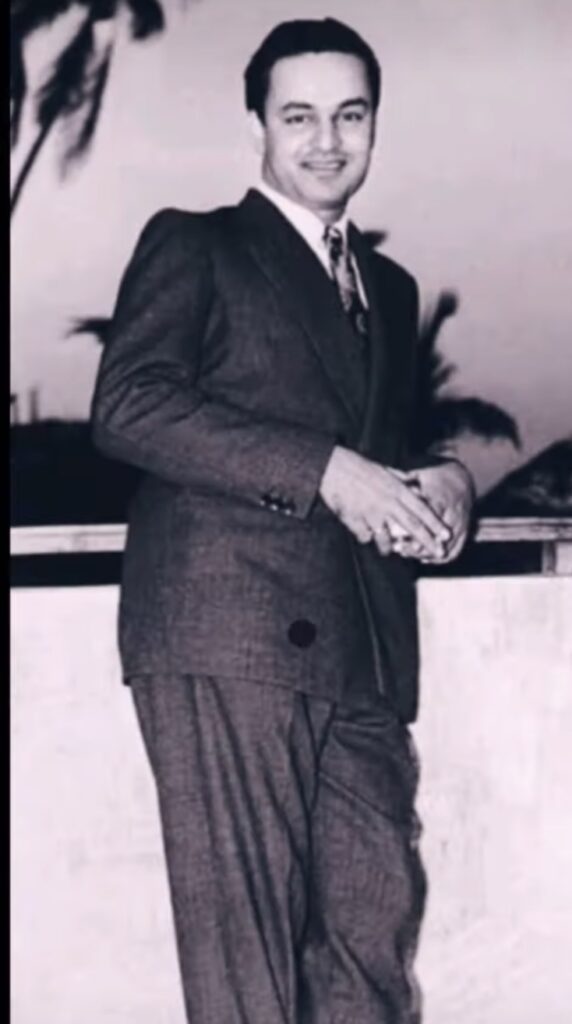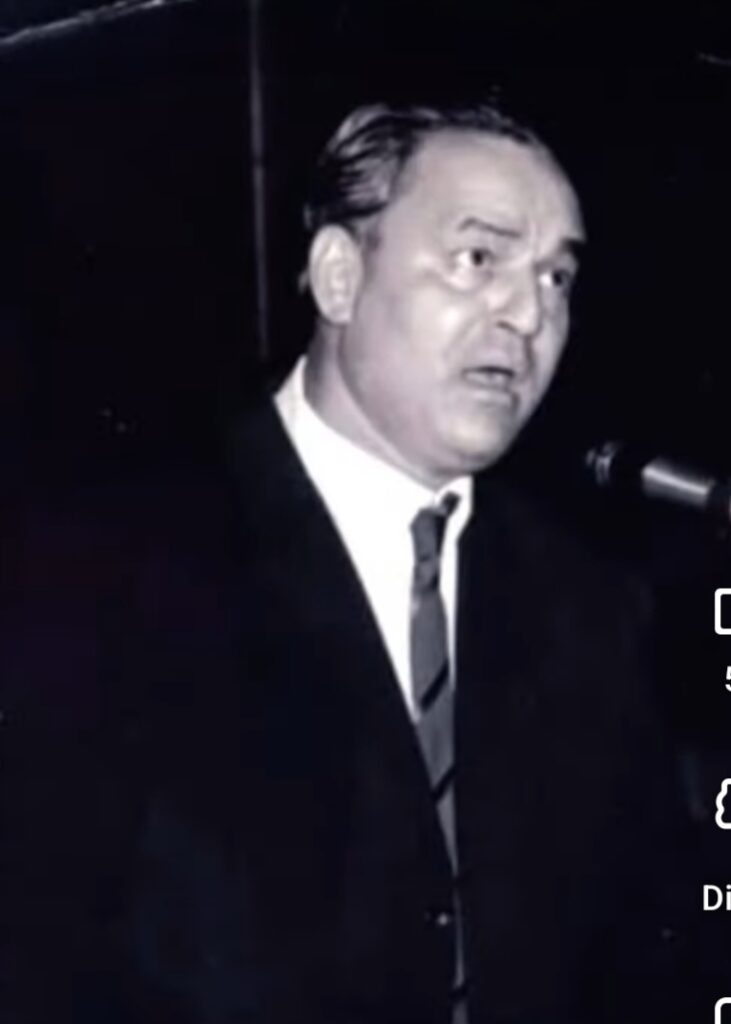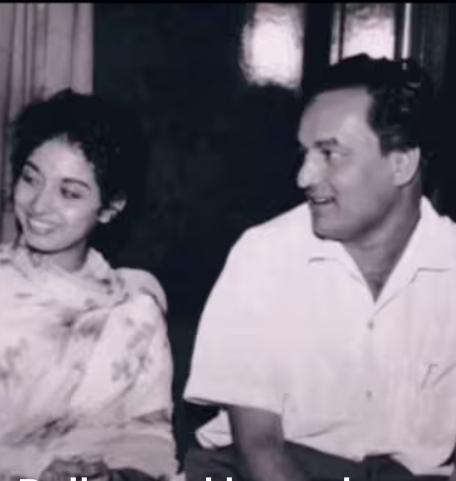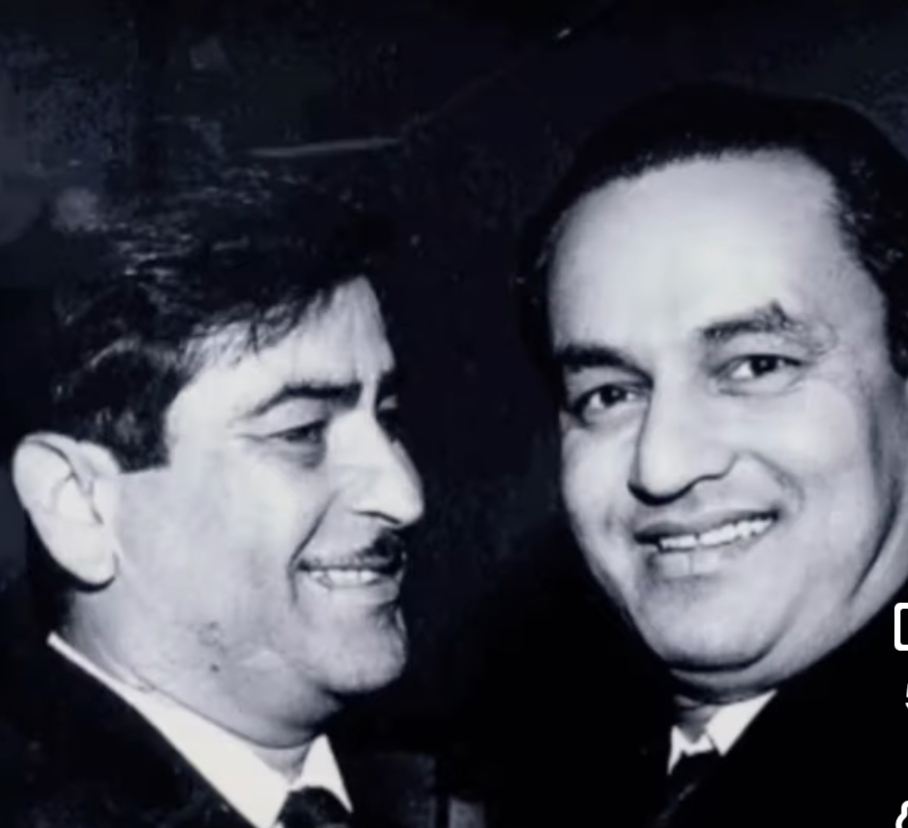

The Eternal Voice : A Tribute to Mukesh on His 49th Death Anniversary
Remembering the soul of Hindi cinema, whose melodies continue to move generations .
On August 27, 2025, we mark the 49th death anniversary of Mukesh Chand Mathur, the man whose voice became the soul of Indian cinema’s golden era. Known simply as Mukesh, his name is synonymous with raw emotion, melodic sincerity, and the kind of timeless resonance that transcends both era and audience. For over three decades, Mukesh lent his voice to the dreams, sorrows, and aspirations of millions, creating a body of work that continues to live and breathe long after his passing.
Today, as tributes pour in from every corner of the globe, we don’t merely remember a playback singer. We honour a cultural beacon—a voice that mirrored the human condition and continues to echo through time.
A Serendipitous Beginning: From Delhi to Dreams

Mukesh was born on July 22, 1923, in Delhi. His journey into the heart of India’s cinematic and musical imagination began not on a recording stage but at a family wedding. It was here that his voice, full of promise, first caught the attention of his distant relative, actor Motilal. Recognizing his immense potential, Motilal brought the young Mukesh to Bombay and arranged training under Pandit Jagannath Prasad, setting the stage for what would become an extraordinary career.
Mukesh’s initial foray into films came as both actor and singer in the 1941 film Nirdosh, where he rendered the melancholic “Dil Hi Bujha Hua Ho To.” But destiny had loftier plans—Mukesh was born not just to act, but to become the voice of a nation.
The Breakthrough: “Dil Jalta Hai” and a New Era
The moment that changed everything came in 1945, with the haunting “Dil Jalta Hai To Jalne De” from Pehli Nazar. Composed by Anil Biswas and penned by Aah Sitapuri, the song revealed Mukesh’s unmatched ability to pour emotion into melody. Initially likened to K.L. Saigal, his idol, Mukesh’s early style bore such a resemblance that Saigal himself reportedly remarked, “That’s strange, I don’t recall singing that song.”
But with time—and under the guiding hand of music director Naushad Ali—Mukesh developed his own distinctive style. His voice broke free from imitation and matured into one of Hindi cinema’s most expressive and soul-stirring sounds. Films like Anokhi Ada (1948), Mela (1948), and Andaz (1949) became testimony to his evolving genius.
The Soul of Raj Kapoor: A Musical Symbiosis

Picture Credit social media
Mukesh’s voice found its perfect on-screen persona in Raj Kapoor. Their collaboration became one of the most iconic duos in the history of Indian cinema. Mukesh wasn’t merely Kapoor’s playback singer—he was the very soul of Kapoor’s characters.
From the wistful idealism of “Awara Hoon” in Awara (1951) to the patriotic swagger of “Mera Joota Hai Japani” in Shree 420 (1955), and the deeply philosophical “Jeena Yahan Marna Yahan” in Mera Naam Joker (1970), Mukesh captured the emotional spectrum of the everyman. His voice gave Raj Kapoor’s characters their moral weight, their aching hearts, and their redemptive spirit.
Beyond Raj Kapoor: A Voice for Every Emotion
Mukesh’s genius was not confined to one actor or one kind of song. His collaborations with maestros like Shankar-Jaikishan, Salil Chowdhury, and Kalyanji-Anandji expanded his canvas.
His romantic despair in “Yeh Mera Deewanapan Hai” (Yahudi, 1958), his serene optimism in “Suhana Safar”, and his heartrending pain in “Dil Tadap Tadap Ke” (Madhumati, 1958) all showcased his emotive versatility. The haunting “Koi Jab Tumhara Hriday Tod De” from Purab Aur Paschim (1970) and the rousing “Deewanon Se Yeh Mat Poocho” from Upkar (1967) further affirmed his stature as an artist of unmatched depth.
Songs like “Jo Tumko Ho Pasand” (Safar, 1970) and “Chhalia Mera Naam” (Chhalia, 1960) revealed how Mukesh could inhabit a composition, making it unforgettable with nothing more than the honesty in his voice.
Awards, Recognition, and a Nation’s Affection
Mukesh’s accolades were a reflection not just of artistic merit, but of the emotional bond he shared with his listeners. He received the National Film Award for Best Male Playback Singer for “Kai Baar Yuhi Dekha Hai” from Rajnigandha (1974), a deceptively simple song that became profound in his voice.
His four Filmfare Awards—for “Sab Kuch Seekha Humne” (Anari, 1959), “Sabse Bada Naadan” (Pehchaan, 1970), “Jai Bolo Beimaan Ki” (Beimaan, 1972), and the immortal “Kabhi Kabhie Mere Dil Mein” (Kabhi Kabhie, 1976)—bear witness to his continued relevance across decades.
Quality Over Quantity: The Hallmark of His Legacy
Unlike some of his prolific contemporaries like Mohammed Rafi or Kishore Kumar, Mukesh recorded fewer songs—about 1,300 in total. Yet every number was treated with reverence and dedication.
In songs like “Kahin Door Jab Din Dhal Jaaye” and “Maine Tere Liye Hi” from Anand (1971), or “Ek Pyar Ka Nagma Hai” from Shor (1972), he gave listeners a world of emotion distilled into a few minutes of melody. Each rendition was sincere, unhurried, and complete—like a handwritten letter in a digital age.
Trials and a Sudden Goodbye
The 1970s brought challenges—changing musical tastes, and the rise of Kishore Kumar’s buoyant style. Mukesh, ever true to his sound, stayed the course. Even as his health faltered, he gifted the world enduring classics like “Kabhi Kabhie Mere Dil Mein” and “Kai Baar Yuhi Dekha Hai.”
Then, on August 27, 1976, while on tour in Detroit, USA, Mukesh suffered a fatal heart attack. He was only 53. His death stunned the nation and silenced a voice that had, until then, been a constant companion to millions.
The Living Legacy of a Cultural Icon
Mukesh’s legacy is not just audible in his songs—it is embedded in India’s emotional memory. He influenced a generation of singers such as Manhar Udhas and Kamlesh Awasthi, and helped shape the storytelling style of Hindi cinema through his work with filmmakers like Raj Kapoor.
His songs, filled with longing and reflection, remain part of India’s post-independence emotional archive—mirroring a society in flux, and anchoring it in melody.
Even today, his music flourishes. From radio waves to Spotify playlists, from college canteens to hospital wards, Mukesh continues to sing to the wounded, the hopeful, the heartbroken, and the dreamers.
A Voice for All Time
On his 49th death anniversary, Mukesh remains more than a memory—he is a living emotion, a constant presence. His music reminds us that art, when born of truth, never fades.
To listen to Mukesh is to feel. And to feel deeply is to live fully. That, perhaps, is his greatest gift—a voice that taught us how to live, love, lose, and hope again.
His melodies are not relics. They are companions.
They are not echoes. They are eternal.
Hasnain Naqvi is a former member of the history faculty at St. Xavier’s College, Mumbai.


